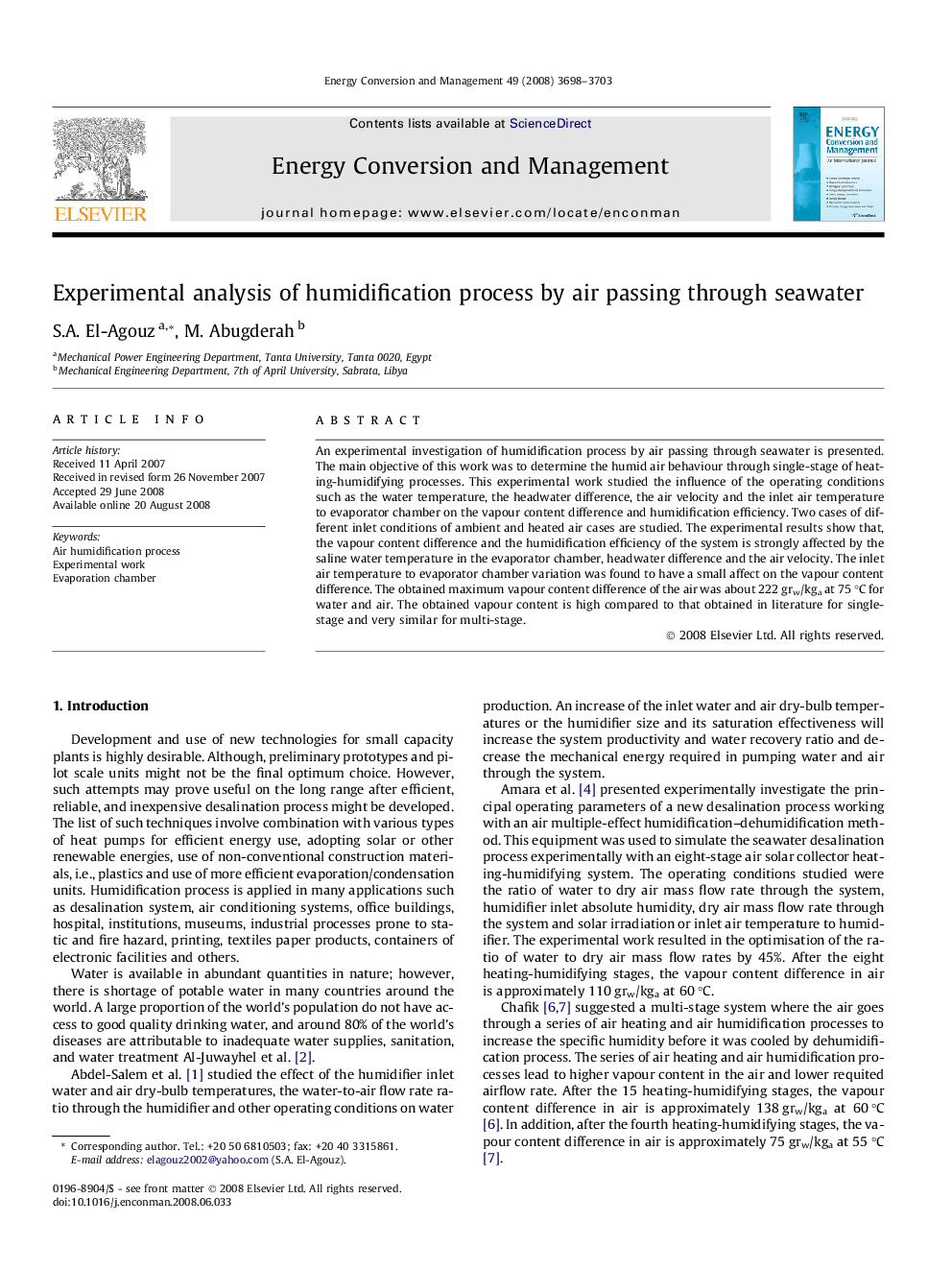| Article ID | Journal | Published Year | Pages | File Type |
|---|---|---|---|---|
| 772744 | Energy Conversion and Management | 2008 | 6 Pages |
An experimental investigation of humidification process by air passing through seawater is presented. The main objective of this work was to determine the humid air behaviour through single-stage of heating-humidifying processes. This experimental work studied the influence of the operating conditions such as the water temperature, the headwater difference, the air velocity and the inlet air temperature to evaporator chamber on the vapour content difference and humidification efficiency. Two cases of different inlet conditions of ambient and heated air cases are studied. The experimental results show that, the vapour content difference and the humidification efficiency of the system is strongly affected by the saline water temperature in the evaporator chamber, headwater difference and the air velocity. The inlet air temperature to evaporator chamber variation was found to have a small affect on the vapour content difference. The obtained maximum vapour content difference of the air was about 222 grw/kga at 75 °C for water and air. The obtained vapour content is high compared to that obtained in literature for single-stage and very similar for multi-stage.
